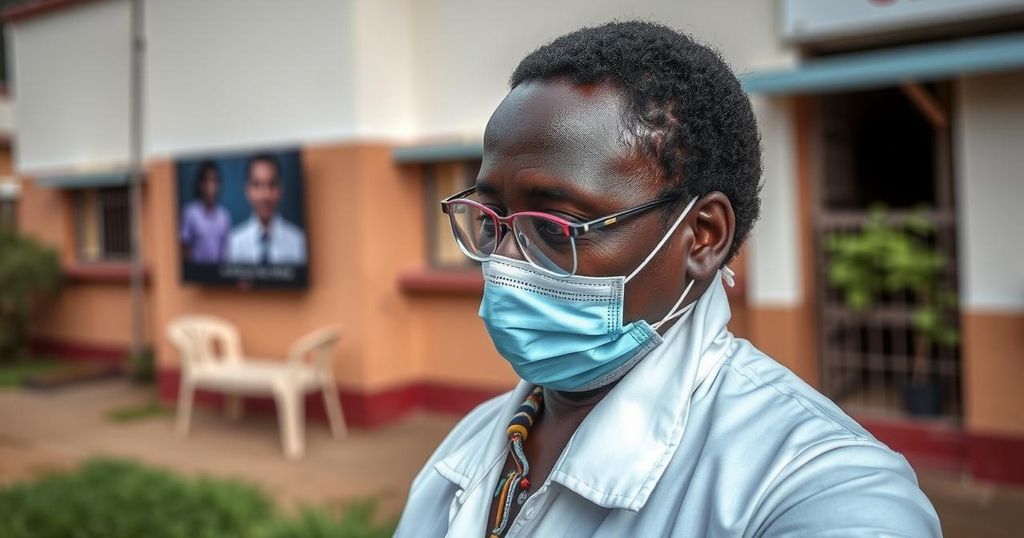Mystery Disease Outbreak in Southwest Congo: Key Details and Insights
In southwest Congo, an unidentified disease outbreak has infected over 400 people since October and led to 143 deaths, mainly among children. The World Health Organization reported flu-like symptoms while local officials noted a higher death toll. The outbreak’s severity is compounded by malnutrition and logistical challenges in accessing treatment. Experts are investigating the disease’s causative factors while urging caution and systematic assessment.
A significant outbreak of an undiagnosed disease in Southwest Congo has raised alarm among health officials, infecting over 400 individuals since late October and resulting in at least 143 fatalities, primarily affecting young children. The World Health Organization (WHO) has identified flu-like symptoms, including fever, cough, and body aches, with severe cases observed among malnourished patients. The outbreak is centered in the remote Kwango province, where access to medical care is severely hampered due to difficult terrain and adverse weather conditions. Rapid response teams have been deployed to assess the situation, yet the specific nature of the disease remains undetermined amid various potential causes.
The WHO has reported 406 confirmed cases as of December 5, with children under 14 constituting 64% of those affected. Local officials’ death toll is significantly higher than the WHO’s count, indicating the urgency and scale of the situation. Initial assessments from the Africa Centers for Disease Control and Prevention suggest a possible respiratory origin for the disease. Nonetheless, the lack of definitive diagnostic capabilities raises concerns about the trajectory of the outbreak.
Continuous efforts are being made to improve healthcare access and manage the crisis, which has been compounded by rising food insecurity in the region. Previous classifications of the food security situation in Kwango have escalated from acceptable to crisis levels within mere months. The WHO has voiced that effective communication and coordination are imperative in combating this outbreak, especially given the localized nature of the threat.
In light of these developments, experts, including epidemiologist Ann Rimoin from the University of California, Los Angeles, have advised caution, emphasizing that a comprehensive investigation is crucial before drawing conclusions about the disease’s nature and ramifications.
The outbreak referenced originates from the Kwango province, situated in southwest Congo, where health services are limited due to its remoteness and poor infrastructure. Since the onset in late October, the disease has showcased symptoms resembling multiple known illnesses, making it difficult to pinpoint its exact cause. The unusual mortality rate, predominantly among young children and vulnerable populations, has garnered attention from both local health officials and international organizations, highlighting the need for timely intervention.
The ongoing outbreak in southwest Congo is a critical public health concern that has already resulted in numerous infections and fatalities. With a significant impact on children and vulnerable populations, the situation demands immediate action from health authorities and the global community to facilitate efficient medical responses and further investigation into the disease’s root causes. Enhanced healthcare coordination and support will be essential in controlling this outbreak and mitigating its impact on affected communities.
Original Source: www.forbes.com




Post Comment